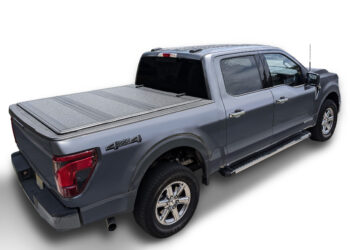When it comes to gardening, choosing the right mulch is a crucial decision. The type of mulch you select can have a significant impact on your garden’s health and aesthetics. With the wide variety of mulching options available, it is essential to make an informed choice.
This small guide provides you with five key tips to help you choose the right mulch for your garden.
1. Understand Your Garden’s Needs
The first step in selecting the right mulch is to understand the specific needs of your garden. Consider the climate, the types of plants you are growing, and the existing soil conditions.
Different mulches cater to various requirements. For instance, organic mulches like wood chips or bark are excellent choices for enhancing soil fertility and moisture retention, while inorganic mulches like gravel or stone work well for conserving soil moisture and suppressing weeds in arid regions. Understanding your garden’s unique conditions will guide you toward the most suitable mulch.
2. Assess Mulch Materials
There is an array of mulch materials to choose from, including wood, straw, leaves, pine straw, shredded rubber, and more. Each material has its benefits and drawbacks.
For example, hardwood mulch decomposes slowly and enriches the soil over time, while pine straw works well for acid-loving plants. Conduct research on the available materials and evaluate their pros and cons in relation to your garden’s specific requirements.
3. Consider Aesthetic Appeal
Mulch does not only serve practical purposes; it can also enhance the visual appeal of your garden. Think about the aesthetics you want to achieve. For a natural and rustic look, wood chips or shredded bark may be ideal.
If you prefer a cleaner and more polished appearance, consider using stone or gravel. The dyed mulch you choose should complement your garden’s overall design and landscaping.
4. Weed Control And Maintenance
One of the primary reasons for mulching is weed control. The right mulch should effectively suppress weeds and reduce the need for labor-intensive weeding. Evaluate the mulch’s ability to prevent weed growth and its longevity.
While organic mulches decompose and need periodic replenishing, inorganic options like landscape fabric can provide long-lasting weed control. Consider how much time and effort you are willing to invest in mulch maintenance.
5. Budget And Sustainability
Your budget and environmental concerns should also play a role in your mulch selection. Organic mulches are typically more affordable but may require regular replenishing. Inorganic mulches, while initially costlier, can last longer.
Additionally, consider the sustainability of the mulch material. Opt for mulch providers that are locally sourced, offer mulch delivery and are renewable to reduce your garden’s carbon footprint.
Bottom Line
Choosing the right mulch for your garden is a decision that should be well-informed. Understanding your garden’s unique needs, assessing mulch materials, considering aesthetic appeal, thinking about weed control and maintenance, and factoring in your budget and sustainability concerns are all essential steps in making the right choice. By following these tips, you can ensure that your garden thrives with the perfect mulch selection, promoting healthy plant growth and a beautiful outdoor space.











